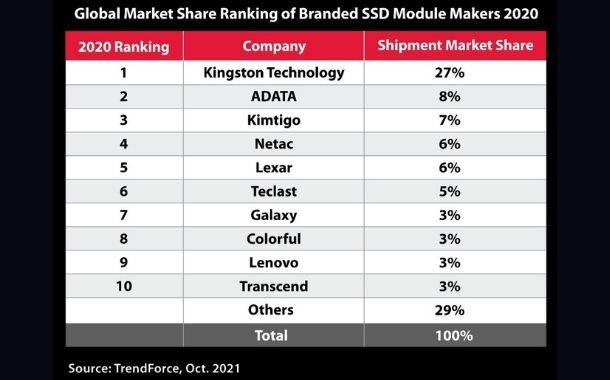Governments in the GCC are taking bold steps to localise data and assert control over digital assets. This shift is driving demand for faster, high-performance storage that enables AI and analytics to happen where the data lives on the ground, in-country, and in real time. Storage performance must evolve in parallel and PCIe Gen5 SSDs offers significant improvements says Antoine Harb at Kingston Technology.
Across the Middle East, a powerful shift is underway in how data is managed, stored, and protected. As regional governments and enterprises accelerate digital transformation driven by AI initiatives, national cloud strategies and smart infrastructure projects, data gravity has become more than a technical term. It now represents a critical operational force shaping the future of IT architecture.
Data gravity describes the tendency of large data sets to attract services and applications toward them. As datasets grow in size and strategic importance, it becomes both technically and economically advantageous to keep compute and analytics close to where the data resides.
In the GCC, where industries like energy, finance, and government generate vast volumes of sensitive information, this principle is particularly relevant. Coupled with evolving national data residency laws such as those in Saudi Arabia and the UAE that mandate critical workloads stay within borders, organisations are rethinking their reliance on global cloud services.
As a result, there is a growing push to build resilient, high-performance infrastructure within the region, designed to support AI, analytics, and real-time processing at the edge.
Governments in the GCC are taking bold steps to localise data and assert control over digital assets. This shift is driving demand for faster, high-performance storage that enables AI and analytics to happen where the data lives on the ground, in-country, and in real time.
To meet these evolving demands, storage performance must evolve in parallel. PCIe Gen5 SSDs, the latest generation of flash storage, offer significant improvements in speed, efficiency, and scalability. They double the bandwidth of their Gen4 predecessors, which in turn improves GPU utilisation in AI and machine learning workloads.
Built on advanced 3D NAND architecture, these drives deliver significantly faster read and write speeds, reducing latency and eliminating traditional data bottlenecks. Their architecture is also power-efficient, reducing energy use and minimising heat output, which lowers cooling requirements and contributes to more sustainable and scalable data centre operations.
In addition, these SSDs are equipped with features such as end-to-end data protection and power-loss safeguards, which ensure data integrity and help avoid costly downtime, factors that are vital for mission-critical applications.
Storage choices must also align with local deployment challenges. This is where purpose-built solutions come into play. For example, Kingston’s DC3000ME SSD, a Gen5 U.2 NVMe drive, is designed specifically for AI, edge, and compute-intensive environments commonly found across the region.
Its ability to sustain high throughput, handle demanding workloads, and minimise system interruptions reflects the broader need for enterprise-grade reliability within sovereign infrastructures.
As PCIe Gen5 adoption accelerates, we see it as a key enabler for data sovereignty and AI readiness in the region.
The gravitational pull of data is real and intensifying. By 2028, global data is projected to exceed 394 zettabytes, amplifying the need for infrastructure that can manage, move, and secure information efficiently. In the Middle East, this momentum is driving workloads back on-premises, reshaping where and how data is processed.
Organisations face growing pressure to enable fast, localised decision-making while maintaining control, compliance, and sustainability. PCIe Gen5 SSDs are emerging as a critical enabler in this transformation, providing the performance foundation needed to support the region’s accelerating digital ambitions.




















